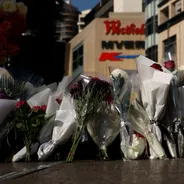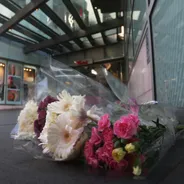On Monday of this week (29th October), reports emerged that Abu Moaaz - a bomb maker for the terrorist group, ISIS - accidentally killed himself. According to a source speaking to Baghdad Today, "An Islamic State bomb maker lost his life Monday while trying to manufacture explosive charges in Diyala province."
The source also disclosed that Moaaz was "one of the most dangerous terrorists" amongst the group, and that "he was wanted on several terror charges".
In the past few months alone, he had been implicated in the killing of a number of policemen and civilians - all of whom died from bomb blasts.
The fine details of his death have not been disclosed, and media only reports that he lost his life while trying to manufacture "explosive charges" in al-Waqf basin, just 25 km outside of Baqubah.

ISIS has been broadly present in Iraq since 2014, at which point they took over territory that borders Syria, with whom they have been waging war. In the last year or so, however, the terror group was driven out of all of Iraq's major cities, and have been left to fight their campaign in small, disbanded groups.
In December last year, Prime Minister Haidar al-Abadi actually declared a "final victory" over the group, but - evidently - there are still some members active and present on Iraqi soil.
Even if Iraq is getting close to victory, however, a great deal of damage has still been done. As reported in Iraqi News:
"The surge in violence between armed groups and government forces has resulted in over five million internally displaced persons across Iraq and left more than 11 million in need of humanitarian assistance, according to the UN Office for the Coordination of Humanitarian Affairs."

Earlier this year, Donald Trump made it clear that he wanted American troops out of the fight against ISIS as soon as possible.
"I want to get out," said back in April. "I want to bring our troops back home. I want to start rebuilding our nation. We will have, as of three months ago, spent seven trillion dollars in the Middle East over the last 17 years. We get nothing—nothing out of it, nothing."
On another occasion, the president promised his supporters: "We're knocking the hell out of ISIS. We'll be coming out of Syria like very soon. Let the other people take care of it now."
Still, despite his multiple claims that the terrorist group have been "defeated", American troops remain on foreign soil in order to fight against them.

The death of Abu Moaaz is certainly not one that will be mourned by anti-ISIS fighters or anyone who has fallen victim to the terrorist group's heinous actions, but it is also no cause for celebration. The fight against the group continues, and the damage they have caused will be present in the cities they have destroyed and the memories of their victims for a very long time to come.












